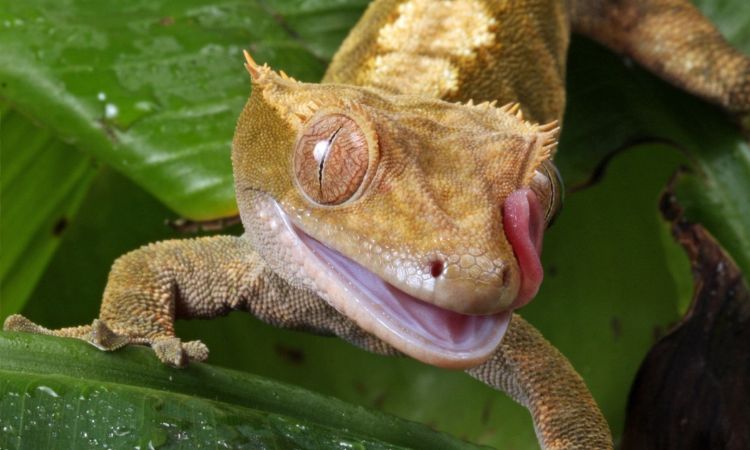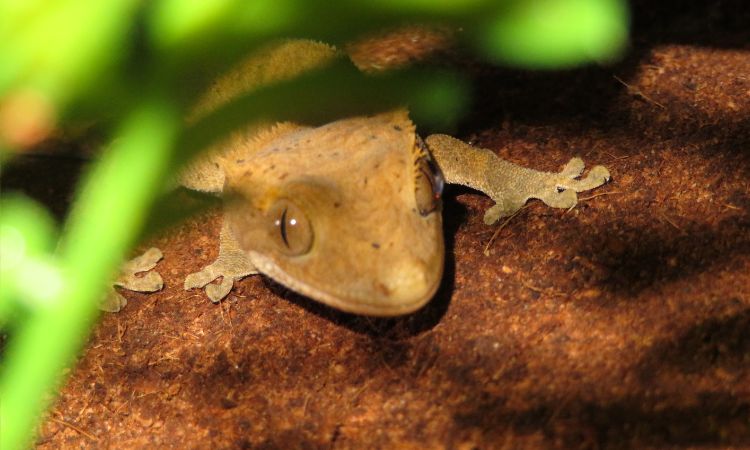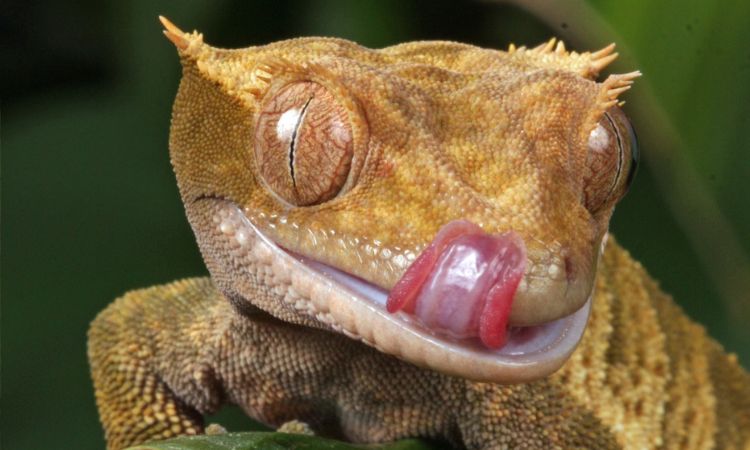As crested geckos originate from tropical climates, many people assume that they can tolerate high temperatures. However, this is not always the case – and if your gecko is exposed to too much heat, it can lead to serious health problems. So how do you know if the temperature is too hot for your pet? And what can you do to keep them safe and comfortable? Read on to find out!
The best temperature for a crested gecko’s environment
Crested geckos are popularly kept as pets due to their ability to thrive in captivity and friendly demeanor. They make great companions for people of all ages and levels of experience, with proper care. But how hot is too hot for a crested gecko?
The optimal temperature range for a crested gecko should be between 72-80°F (22-27°C). Any higher than that can cause heat stress or even death. A basking spot should be kept around 80°F (27°C) with the rest of the enclosure at 72-78°F (22-25.5°C). Additionally, you will need a UVB light source in order to provide your crested gecko with natural day/night cycles and facilitate healthy shedding.
Crested geckos are native to warm climates and can tolerate a wide range of temperatures
Crested geckos are truly fascinating creatures, and the fact that they can tolerate such a wide range of temperatures makes them prime candidates for a pet.
Native to warm climates, such as those found in southern New Caledonia, these geckos have an impressive ability to adapt to their surroundings. They prefer tropical habitats but, as mentioned before, they can easily handle a wide temperature range, making them even more lovable than they already are.
Although, care should always be taken when choosing any pet home and ambient temperature is no exception.

Crested geckos cannot withstand extreme heat or cold
Geckos are amazing creatures – they can run very quickly, can climb up any surface and even walk upside down on the ceiling! However, despite their incredible abilities, geckos cannot tolerate extreme temperatures.
In extremely cold or hot conditions geckos could be seriously hurt, making it important to provide a secure habitat for them with moderate temperature control in order to ensure their safety.
Despite this limitation, geckos remain fascinating creatures and seeing them maneuver so skillfully around obstacles is captivating.
The ideal temperature for a crested gecko is between 75 and 85 degrees Fahrenheit
The ideal temperature for a crested gecko is vitally important for their health and wellbeing. The gecko’s environment should be kept between 72 and 80 degrees Fahrenheit to ensure they are getting the best conditions possible.
Having the temperature too hot or too cold can cause potential stress on the gecko, as well as other health complications. In order to keep your gecko in optimal condition, it is essential to regulate their heat carefully. Investing in a thermometer will allow you to constantly check that your gecko’s environment is within these ideal ranges, providing them with the best possible care.
You need to ensure that your gecko is living in an environment that mimics their natural habitat – not too hot and not too cold – so that they remain healthy and happy!

Extreme hot and cold can cause stress and illness for your crested gecko
Geckos of all kinds are fairly hardy critters, as long as they are kept in the right kind of conditions. However, if their habitats become too cold or too hot, geckos can begin to show signs of stress. In these extreme temperatures, geckos may stop eating and become more prone to illness.
Extreme temperatures can also cause geckos to allocate large amounts of energy towards regulating their body temperature instead of activities like reproducing and growing, which ultimately leads to a less healthy gecko.
That’s why it’s important for gecko owners to make sure that the temperature in their gecko’s habitat doesn’t get too high or too low – happiness and health for your gecko depends on it!
Ways to keep your crested gecko’s temperature comfortable
Crested geckos are captivating and relatively low-maintenance pets, but it’s still important to know how to create a comfortable environment for them. There are several ways that you can do this; using a heat lamp or basking spot is one way they can access the warmth they need since geckos originate from tropical regions.
Also, some geckos naturally live in humid environments, so regularly misting their enclosure is another important thing to consider when caretaking. Along with these environmental factors, providing your gecko with hiding spots allows them to feel secure and fulfilled while in their home.
Each of these elements contribute to your gecko’s overall comfort and make them happy as long as possible.

Make sure to monitor the temperature for your crested gecko’s comfort
It’s vital to keep an eye on the temperature of your crested gecko’s enclosure. Different gecko species prefer different temperatures, and any drastic changes in temperature can cause stress, illness and even death.
Keeping the enclosure at an appropriate temperature helps ensure that your gecko remains healthy, content and able to carry out its natural behaviors. Investing in an easy-to-use digital thermometer will allow you to accurately monitor the temperature inside the gecko’s habitat so that your pet receives the best possible care.
Crested geckos are a type of lizard that originates from warm climates. They can withstand a wide variety but too much heat or cold will stressing them out. The ideal temperature for a crested gecko is between 75-85 degrees Fahrenheit.
There are several ways you can maintain this temperature including using a heat lamp or basking spot, misting their enclosure, and providing hiding spots.
It’s important to monitor the temperature closely to make sure they stay healthy and happy.
Wrapping it up
In conclusion, the environment for a crested gecko should be monitored closely and adjusted accordingly. When the temperature rises above 85°F, consider putting in a fan to reduce the heat. Most importantly, make sure there is an area in the enclosure where the gecko can cool off if it gets too hot. Providing a crested gecko with the proper environment is essential for its health and well-being.
Related posts:

Hi – I’m Erika, the lead gecko enthusiast here at Geckopedia! I write articles about pet geckos, including what to feed your leopard gecko and how to help your pet gecko live a long, happy life! I graduated with advanced degrees from UC-Berkeley, the University of Southern California (USC) and Indiana University-Bloomington, where I studied Biology and Animal Science. I use my experience to help others learn about gecko care, and I am an advocate for all topics gecko related!
